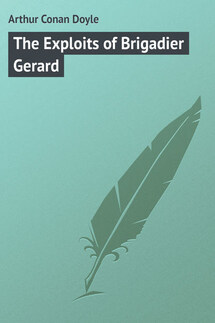Through the Magic Door - страница 3
"And how can man die better Than facing fearful odds For the ashes of his fathers And the Temples of his Gods?"
In trying to show that Macaulay had not the poetic sense he was really showing that he himself had not the dramatic sense. The baldness of the idea and of the language had evidently offended him. But this is exactly where the true merit lies. Macaulay is giving the rough, blunt words with which a simple-minded soldier appeals to two comrades to help him in a deed of valour. Any high-flown sentiment would have been absolutely out of character. The lines are, I think, taken with their context, admirable ballad poetry, and have just the dramatic quality and sense which a ballad poet must have. That opinion of Arnold's shook my faith in his judgment, and yet I would forgive a good deal to the man who wrote –
"One more charge and then be dumb, When the forts of Folly fall, May the victors when they come Find my body near the wall."
Not a bad verse that for one's life aspiration.
This is one of the things which human society has not yet understood – the value of a noble, inspiriting text. When it does we shall meet them everywhere engraved on appropriate places, and our progress through the streets will be brightened and ennobled by one continual series of beautiful mental impulses and images, reflected into our souls from the printed thoughts which meet our eyes. To think that we should walk with empty, listless minds while all this splendid material is running to waste. I do not mean mere Scriptural texts, for they do not bear the same meaning to all, though what human creature can fail to be spurred onwards by "Work while it is day, for the night cometh when no man can work." But I mean those beautiful thoughts – who can say that they are uninspired thoughts? – which may be gathered from a hundred authors to match a hundred uses. A fine thought in fine language is a most precious jewel, and should not be hid away, but be exposed for use and ornament. To take the nearest example, there is a horse-trough across the road from my house, a plain stone trough, and no man could pass it with any feelings save vague discontent at its ugliness. But suppose that on its front slab you print the verse of Coleridge –
"He prayeth best who loveth best All things, both great and small For the dear Lord who fashioned him He knows and loveth all."
I fear I may misquote, for I have not "The Ancient Mariner" at my elbow, but even as it stands does it not elevate the horse-trough? We all do this, I suppose, in a small way for ourselves. There are few men who have not some chosen quotations printed on their study mantelpieces, or, better still, in their hearts. Carlyle's transcription of "Rest! Rest! Shall I not have all Eternity to rest in!" is a pretty good spur to a weary man. But what we need is a more general application of the same thing for public and not for private use, until people understand that a graven thought is as beautiful an ornament as any graven image, striking through the eye right deep down into the soul.
However, all this has nothing to do with Macaulay's glorious lays, save that when you want some flowers of manliness and patriotism you can pluck quite a bouquet out of those. I had the good fortune to learn the Lay of Horatius off by heart when I was a child, and it stamped itself on my plastic mind, so that even now I can reel off almost the whole of it. Goldsmith said that in conversation he was like the man who had a thousand pounds in the bank, but could not compete with the man who had an actual sixpence in his pocket. So the ballad that you bear in your mind outweighs the whole bookshelf which waits for reference. But I want you now to move your eye a little farther down the shelf to the line of olive-green volumes. That is my edition of Scott. But surely I must give you a little breathing space before I venture upon them.









